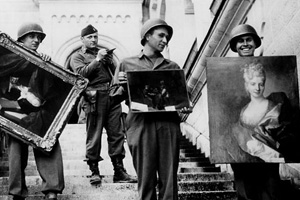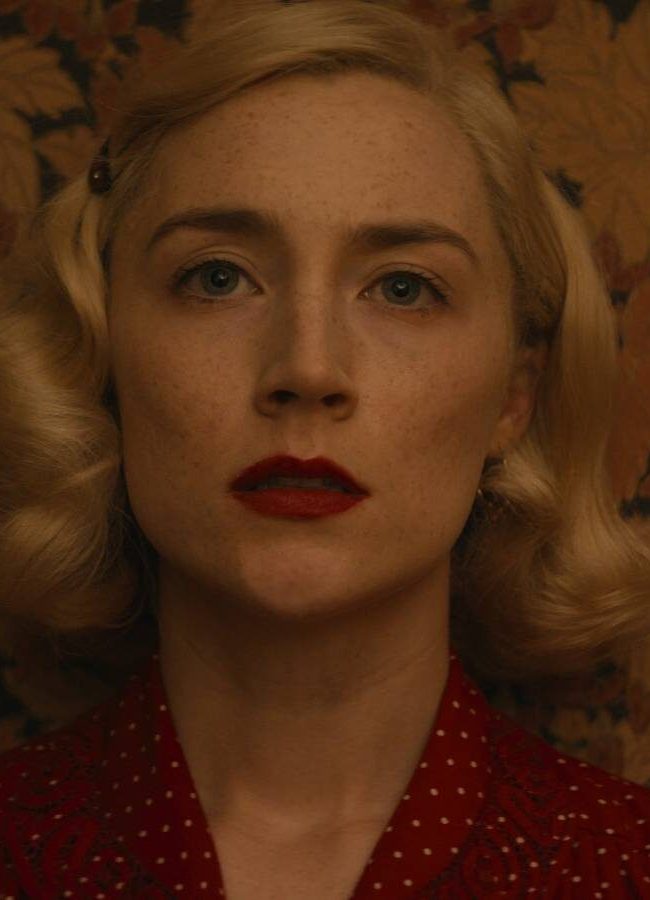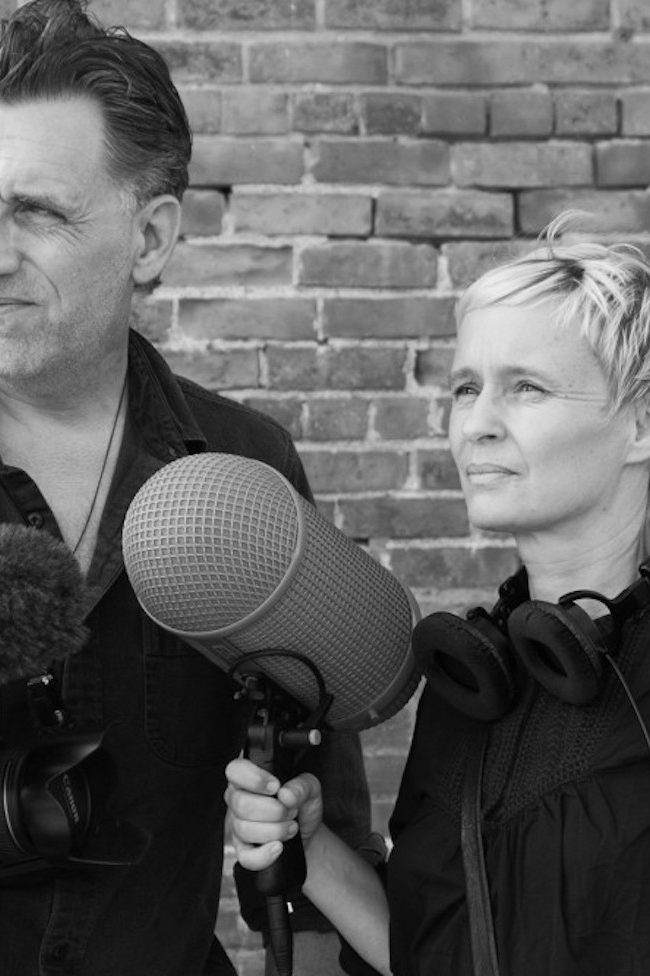(The Rape of Europa is now available on DVD. Buy it at Amazon.)
It seems a tacky premise for a documentary: to convince viewers that stealing precious works of art was one of the more horrific and inhumane crimes committed by Hitler during the Holocaust. Raiding museums for paintings just doesn’t have the same ring to it as the widespread mass slaughtering of actual human beings. But somehow, The Rape of Europa convincingly shows how the literal act of stealing art was more than mere thievery; it was, in fact, a pillaging of history, culture, and personal identity on an incomprehensibly horrendous scale. While The Rape of Europa might sound dry on paper, it emerges on screen as an absorbing, illuminating experience.
For a project so heavily dependent on factual information and stock footage to make its point, it seems necessary for there to have been three writers/producers/directors: Richard Berge, Bonni Cohen, and Nicole Newnham. There’s no way one filmmaker could have been so thorough. Whether each individual performed a specific task (archival footage, historical research, etc.) or they were assigned an entire chapter on their own (Poland, Paris, etc.), the final product is executed with seamless precision. The cinematography of Jon Shenk and music of Marco d’Ambrosio help to unify the film and bridge gaps in geography and time.
 While The Rape of Europa provides a vital history lesson, for me, what makes it so impressive is that it has made me look at art in a completely different way (this is a stretch but the most immediate comparison that comes to mind is Gary Hustwit’s Helvetica). Whenever I hear about a painting selling for fifteen million dollars, I want to throw up. I appreciate and admire visual art, I like museums, but I have never been able to understand how one of these objects could be worth so much. But placed in the context of Hitler’s reign of terror, they became much more than mere objects. At that point, they were elevated to towering symbols of hope and pride for everyone who was suffering under Hitler’s reign. They were as precious as life itself.
While The Rape of Europa provides a vital history lesson, for me, what makes it so impressive is that it has made me look at art in a completely different way (this is a stretch but the most immediate comparison that comes to mind is Gary Hustwit’s Helvetica). Whenever I hear about a painting selling for fifteen million dollars, I want to throw up. I appreciate and admire visual art, I like museums, but I have never been able to understand how one of these objects could be worth so much. But placed in the context of Hitler’s reign of terror, they became much more than mere objects. At that point, they were elevated to towering symbols of hope and pride for everyone who was suffering under Hitler’s reign. They were as precious as life itself.
A running thread through the film concerns Gustav Klimt’s Gold Portrait, which was stolen from Viennese Jews in 1938 and found its way to an unexpected place. The filmmakers use this painting—the most expensive painting ever sold—as just one example of the mess that Hitler’s systematic thievery created. To this day, dedicated individuals are working to restore stolen paintings to their rightful owners. This is just one of the many ways in which The Rape of Europa succeeds. It is much, much more than just another Holocaust documentary.
— Michael Tully











